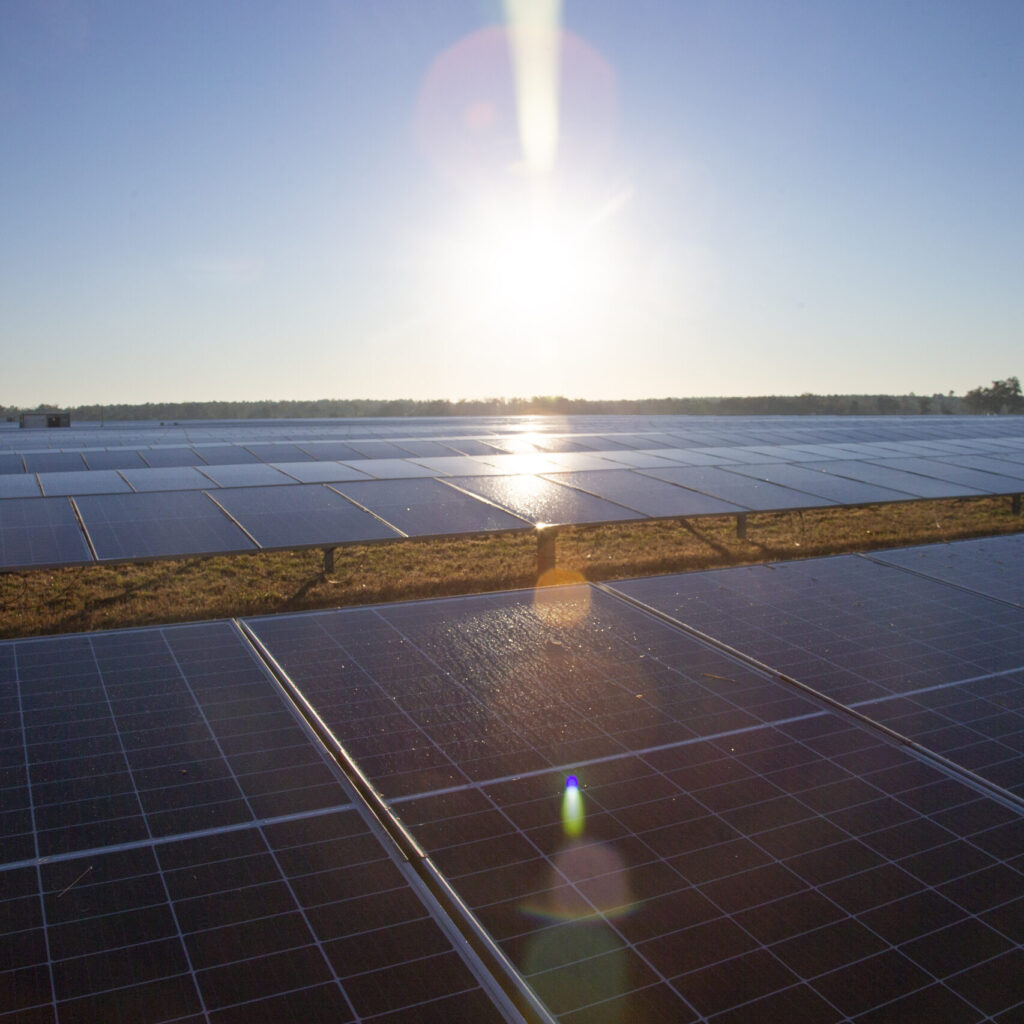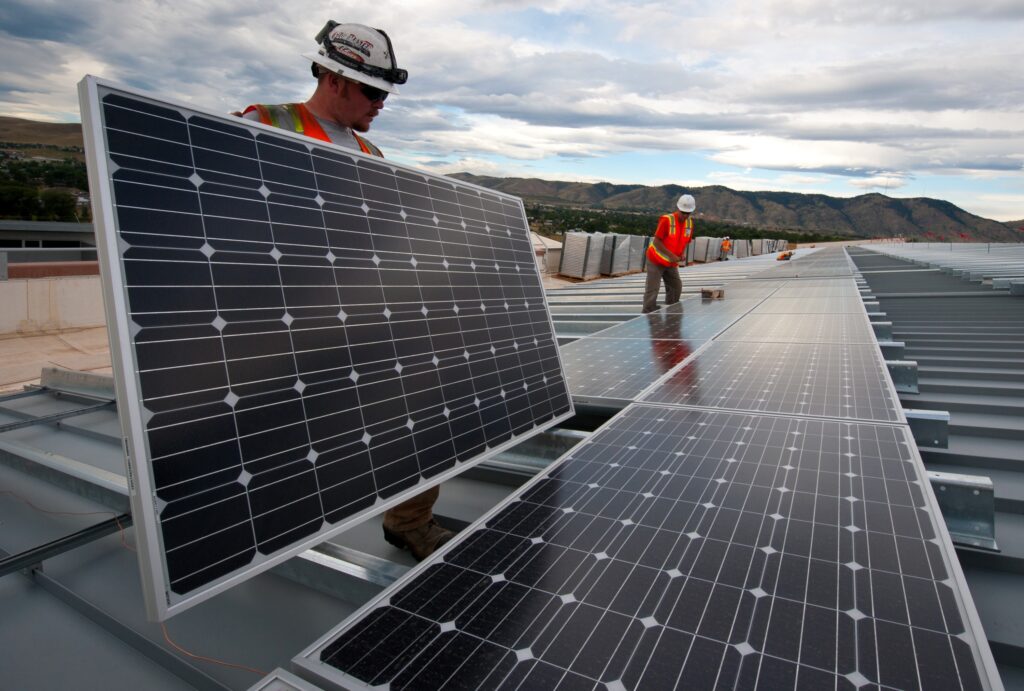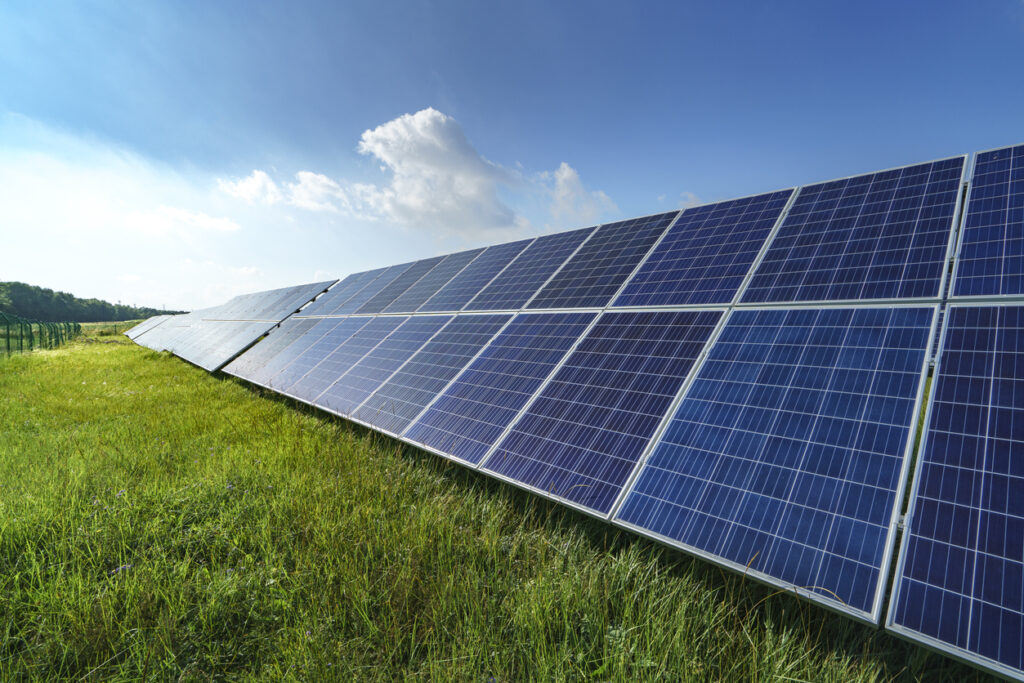Commitment to 100% Renewable Energy
Wake Forest University and eight other colleges and universities in North Carolina and Pennsylvania are joining forces to bring a large-scale solar facility onto the U.S. electrical power grid in western Kentucky. By collaborating on this Power Purchase Agreement (PPA), Davidson College, Dickinson College, Elon University, Haverford College, Lafayette College, Lehigh University, Muhlenberg College, Swarthmore College and Wake Forest University are accessing the benefits of renewable energy through an arrangement typically only feasible for large customers.
Frequently Asked Questions
Wake Forest University uses about 66k MWh of energy annually. A study was conducted in 2021 that identified just 1.5 MW of eligible roof space on campus at a cost of about $3 million. In order to offset Wake Forest’s electrical footprint alone, we would need approximately 25 acres of land. There is not sufficient land adjacent to campus to install a solar array of this size.
There are, however, a number of solar photovoltaic (PV) and solar thermal installations already on campus that demonstrate the benefits of renewable energy on a small scale. For example, South Residence Hall’s water is heated by the solar thermal panels on its roof. The Reynolds Gymnasium pool is also heated through the solar thermal panels on its roof. Other installations around campus include PV demonstrations on the Activities Space at the Barn and North Dining Hall. The panels on the Barn were the first onsite renewable energy installation at Wake Forest.
The schools selected the project due to shared criteria, including minimized risk, regional proximity, and the cost structure of the agreement. The project site in Robards, Kentucky is located in the MISO utility region, where power on the grid is generated primarily by coal-burning power plants. Additionally, the first phase of the solar development, Sebree Solar I, is already under construction and the conditional use permit is in hand for Sebree Solar II, which limits the risk of the project not moving forward.
The developer, NextEra Energy Resources, takes on the cost of building and operating the solar development. NextEra will sell the electricity generated by the solar array to the market at a floating price. When the floating price exceeds the fixed price set between the developer and the schools, funds will be sent to the schools for deposit. In months where the floating price is lower than the fixed price, the schools will pay the developer the difference.
1 MWh of energy generated by the project results in 1 Renewable Energy Credit (REC). The schools will receive credits for the production in the form of RECs. Rather than selling the RECs on the open market, Wake Forest will retire them as an offset to our electrical load. Learn more about RECs here.
Each year from 2025-2029, NextEra Energy Resources will offer two virtual or in-person lectures at one North Carolina and one Pennsylvania school in the aggregation. NextEra Energy Resources will also offer a student internship program, hiring and supervising a minimum of two full-time interns total from the nine schools for a minimum of six weeks for nine consecutive calendar years (2025-2033). Roles will allow the students to substantively learn about renewable energy projects. Engaged learning opportunities will also be possible, with NextEra’s provision of a dashboard with operational project data available for educational use. Annual site visits guided by NextEra Energy Resources or affiliates will also be available to students, faculty, and staff.
Over its 30-year lifespan, the solar site will contribute approximately $12 million in additional tax revenue to Henderson County, which can be used for roads, schools and other public services.
Related Posts
- Wake Forest University Commits to 100% Renewable Energy
 WFU partners with eight colleges and universities for large-scale solar facility Earth Day, April 22, 2024 Wake Forest University and […]
WFU partners with eight colleges and universities for large-scale solar facility Earth Day, April 22, 2024 Wake Forest University and […] - WFU Experts Respond to Fifth National Climate Assessment
 The effects of burning fossil fuels and emitting heat-trapping greenhouse gasses are vast and worsening across all regions of the […]
The effects of burning fossil fuels and emitting heat-trapping greenhouse gasses are vast and worsening across all regions of the […] - The Growing Role of Renewable Energy
 Perspectives on Sustainability, Quarterly Newsletter As we publish, world leaders and climate reporters are gathered in Dubai for the 28th […]
Perspectives on Sustainability, Quarterly Newsletter As we publish, world leaders and climate reporters are gathered in Dubai for the 28th […] - On the Road to a Carbon Neutral Wake Forest: The Team and Strategies Making It Happen
 During November of 2021, 120 leaders from around the world convened to discuss the state of Earth’s climate and deliver […]
During November of 2021, 120 leaders from around the world convened to discuss the state of Earth’s climate and deliver […] - Students Moderate Civil Discourse at NC Power Dialog
 Last week, the North Carolina Power Dialog allowed students to participate in civil discourse through a different lens: their own. The US has made a climate commitment of 30% cuts in global warming pollution by 2030. The mission of the national Power Dialog was to allow 10,000 students to engage in face-to-face dialog with state officials and energy experts in more than thirty states nationwide. Students and faculty for North Carolina’s dialog hailed from Wake Forest, Appalachian State University, Duke University, Guilford College, and NC A&T University.
Last week, the North Carolina Power Dialog allowed students to participate in civil discourse through a different lens: their own. The US has made a climate commitment of 30% cuts in global warming pollution by 2030. The mission of the national Power Dialog was to allow 10,000 students to engage in face-to-face dialog with state officials and energy experts in more than thirty states nationwide. Students and faculty for North Carolina’s dialog hailed from Wake Forest, Appalachian State University, Duke University, Guilford College, and NC A&T University. - North Carolina Power DialogThe NC Power Dialog will engage North Carolina college and university students in meaningful dialog with regulators, legislators, representatives […]
